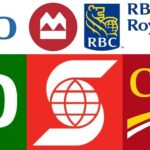Last Updated on April 17, 2025 by admin
The banking industry in South Africa plays a pivotal role in the country’s economy, serving as a cornerstone for financial stability and growth.
The country is home to a robust banking sector, dominated by the “big five” banks: Standard Bank, FirstRand (operating as First National Bank), Absa, Nedbank, and Capitec Bank
These institutions collectively hold nearly 90% of the country’s banking sector assets, providing a wide range of financial services to both retail and corporate clients. Their extensive branch networks and advanced digital platforms make them key players in the financial landscape of the continent.
Banks in South Africa are not just financial institutions but key pillars of the economy. They facilitate trade, investment, and economic development by providing capital, liquidity, and financial stability. The banking sector’s health is closely intertwined with the overall economic well-being of the country.
The banking sector is not only characterized by its major players but also by its adaptability and resilience. Despite challenges such as high interest rates and slow economic growth, banks are focusing on diversifying their revenue sources and enhancing customer experiences through digital transformation. This includes partnerships and acquisitions to boost non-interest income and a focus on operational efficiency and innovation.
Read:How to register for Standard Bank of South Africa online banking and Mobile App
How is banking contributing to South Africa economy growth
Banking plays a significant role in South Africa’s economic growth by driving financial inclusion, supporting businesses, and enabling infrastructure development. Here’s how:
- Banks provide access to financial services for individuals and small businesses, helping to reduce poverty and inequality. Digital banking innovations have made it easier for people in remote areas to access banking services.
- Banks offer loans, credit facilities, and investment opportunities to businesses, fostering entrepreneurship and job creation. This is particularly important for small and medium-sized enterprises (SMEs), which are key drivers of economic growth.
- Banks finance large-scale infrastructure projects, such as energy, transportation, and housing, which are critical for economic development and improving living standards.
- A robust banking sector contributes to economic stability by managing risks, providing liquidity, and supporting monetary policies.
- South African banks are investing in digital transformation, which not only improves efficiency but also attracts foreign investment and enhances the country’s global competitiveness
Read: standard bank South Africa personal loan Types: How to apply and increase Revolving Loan & Overdraft
List and names of bank in south Africa
South Africa has a diverse banking sector, including domestic banks, foreign subsidiaries, mutual banks, and cooperative banks. Here’s a list of some notable banks:
Domestic Banks
- Absa Bank Ltd
- African Bank Limited
- Capitec Bank Ltd
- Discovery Bank Ltd
- FirstRand Ltd
- Investec Bank Ltd
- Nedbank Ltd
- Sasfin Bank Ltd
- Standard Bank of South Africa Ltd
- Tyme Bank Ltd
Foreign Subsidiaries
- Access Bank (South Africa) Ltd
- Albaraka Bank Ltd
- Habib Bank
- HBZ Bank Ltd
Mutual Banks
- Bank Zero Mutual Bank
- Finbond Mutual Bank
- GBS Mutual Bank
- YWBN Mutual Bank
Cooperative Banks in SA
In South Africa, there are several cooperative banks, primarily focused on providing financial services to their members and promoting economic development
- Ditsobotla Primary Savings and Credit Co-operative Banks.
- OSK Koöperatiewe Bank Beperk.
- Ziphakamise Savings and Credit Co-operative Bank.
- KSK Koöperatiewe Bank Beperk.
- GIG Co-operative Bank.
FAQS
What are the major commercial banks in South Africa?
Some of the largest banks include:
- Standard Bank
- FirstRand (which includes FNB)
- Absa Group
- Nedbank
- Capitec Bank
- Investec
Are there different types of banks in South Africa?
Yes, the South African banking sector includes:
- Commercial Banks: These are the most common, offering a wide range of services to individuals and businesses.
- Mutual Banks: These are owned by their depositors. Examples include Finbond Mutual Bank and Bank Zero Mutual Bank.
- Co-operative Banks: These are member-based financial services cooperatives.
- Foreign Banks: These are branches or subsidiaries of international banks operating in South Africa.
How is the banking sector regulated in South Africa?
The primary regulator is the South African Reserve Bank (SARB), specifically through the Prudential Authority (PA), which operates within the SARB. Key legislation includes the Banks Act and the Financial Sector Regulation Act (FSRA). The FSRA introduced the “twin peaks” model, with the PA responsible for prudential regulation and the Financial Sector Conduct Authority (FSCA) overseeing market conduct.
Is there a deposit insurance scheme in South Africa?
Yes, the FSRA makes provision for a deposit insurance scheme, including a Corporation for Deposit Insurance (CODI) and a Deposit Insurance Fund (DIF), to protect depositors.
What are the common banking services offered in South Africa?
These include:
- Transaction accounts (cheque/current accounts)
- Savings accounts
- Credit and debit cards
- Loans (personal, home, vehicle, business)
- Investments
- Online and mobile banking
- Bill payments
- Money transfers
What documents are typically required to open a bank account?
Requirements usually include:
- Proof of identity (e.g., passport, national ID)
- Proof of residence (e.g., utility bill, lease agreement)
- Tax identification number
- Sometimes, proof of income or employment
- How to Register for CIBC Online Banking and Mobile - January 13, 2026
- All Nigerian Banks Ussd Code for transaction - November 30, 2025
- How to contact Central Bank of Nigeria Email, Phone & Branches - November 19, 2025









